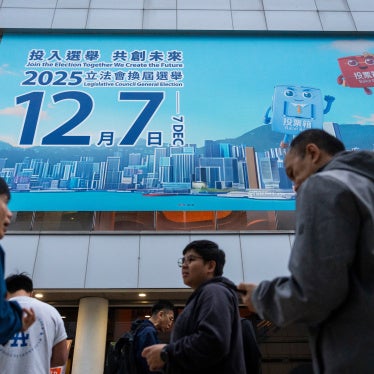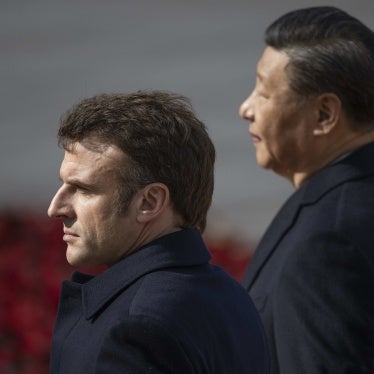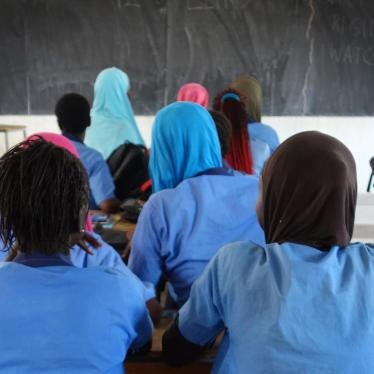There was no mention of specific victims of Beijing's human rights abuses, such as the 2010 Nobel Peace Prize laureate Liu Xiaobo. Liu is serving an 11-year prison term for "inciting subversion" over his role in drafting Charter 08, an online petition advocating peaceful political change in China and respect for rights and freedoms embodied in the country's constitution. Efforts to silence him extend to his wife, Liu Xia, who is believed to be under house arrest to prevent her from campaigning on her husband's behalf. There was nary a whisper of the Chinese government's ongoing campaign of harassment, detention, imprisonment and disappearance of people like Liu - who ask only for the rights and freedoms embodied in both international and domestic law.
The EU cannot claim it does not know about the human rights abuses. After all, in January, the union's foreign policy chief Catherine Ashton voiced concern about the "deterioration" of conditions for Chinese human rights activists; following the sentencing of the writers Chen Xi and Chen Wei in December on spurious "subversion" charges. Chen Wei was sentenced to nine years in prison on December 23, on charges of "inciting subversion of state power" for online criticism of the government. Three days later, a Guiyang court handed down a 10-year sentence on the same charge to Chen Xi - for similar on-line criticism of China's one-party rule.
Closer to home, Liao Yiwu, one of China's most prominent dissident writers, fled into exile in Germany last July after enduring years of harassment, intimidation and imprisonment at the hands of a Chinese government unwilling to countenance Liao's searing literary exposes of the darker side of China's economic rise. The Chinese government's torment of the disabled housing rights activist Ni Yulan would also have been an appropriate topic of discussion at the EU-China Summit. The recipient of the Dutch government's annual Human Rights Defender Tulip Prize, Ni Yulan is currently in prison awaiting sentencing, along with her husband Dong Jiqin on spurious charges of "inciting a disturbance". Chinese security agents subsequently prevented Ni's daughter, Dong Xuan, from boarding a plane to claim Ni's award on her mother's behalf.
A truly productive exchange on human rights would also have included reference to Hu Jia, the recipient of the 2008 EU Sakharov Prize for freedom of thought. Since Hu Jia's release from prison in July 2011, after serving a 42-month prison term on a less than genuine charge of "inciting subversion of state power" - Hu, his wife Zeng Jinyan and their infant daughter have remained under intrusive police surveillance and control. In January, Hu was detained by the police and questioned for seven hours about a letter he wrote to the Nobel peace prize committee in December, appealing for greater attention to the plight of Liu Xiaobo and his wife. Human Rights Watch has noted the EU's public and private diplomacy about the human rights environment and individual cases in China. However, those efforts have not been sufficiently robust or consistent. Nor are they designed to seriously effect change on China's appalling human rights record or support the forces for positive change. Foremost among them are the courageous individuals, who dare to challenge abusive government conduct and demand that the government respect their constitutional rights of free expression.
As the Arab spring reminds us, the EU and others needs to take public opinion into account when formulating policies toward third countries. Significant numbers of people in China, too, are making known their complaints about issues ranging from public health to corruption, from land seizures to access to justice. In doing so, they face a range of possible retributive measures, including torture and imprisonment. Europe has quite visibly demonstrated support for efforts to ensure better respect for human rights around the 2011 public protests in North Africa and the Middle East. It should do no less in response to peaceful public protest and government crackdowns and abuses in China. Given that the EU-China Summit communiqué "emphasized the promotion and protection of human rights and the rule of law" - the EU should have raised the Chinese government's enforced disappearance of some of its more high profile critics over the past year. Those critics were abducted by security forces that apparently held them in secret detention without any legal protection and judicial procedure - a serious crime under international law.
While all were eventually released, it should be of profound concern to the EU that a provision in China's draft criminal procedure law could effectively legalise such disappearances. Europe could have used the platform of the summit to press Chinese government representatives to withdraw that provision to protect citizens from a practice at odds with both international law and rights and freedoms embodied in China's constitution. Overlooking the retreat of the rule of law in China and its growing list of victims could seriously undermine the EU's efforts to create long-term, sustainable and mutually beneficial bilateral economic and diplomatic relations - with a government increasingly willing to ride roughshod over international norms.
Phelim Kine is senior Asia researcher at Human Rights Watch







